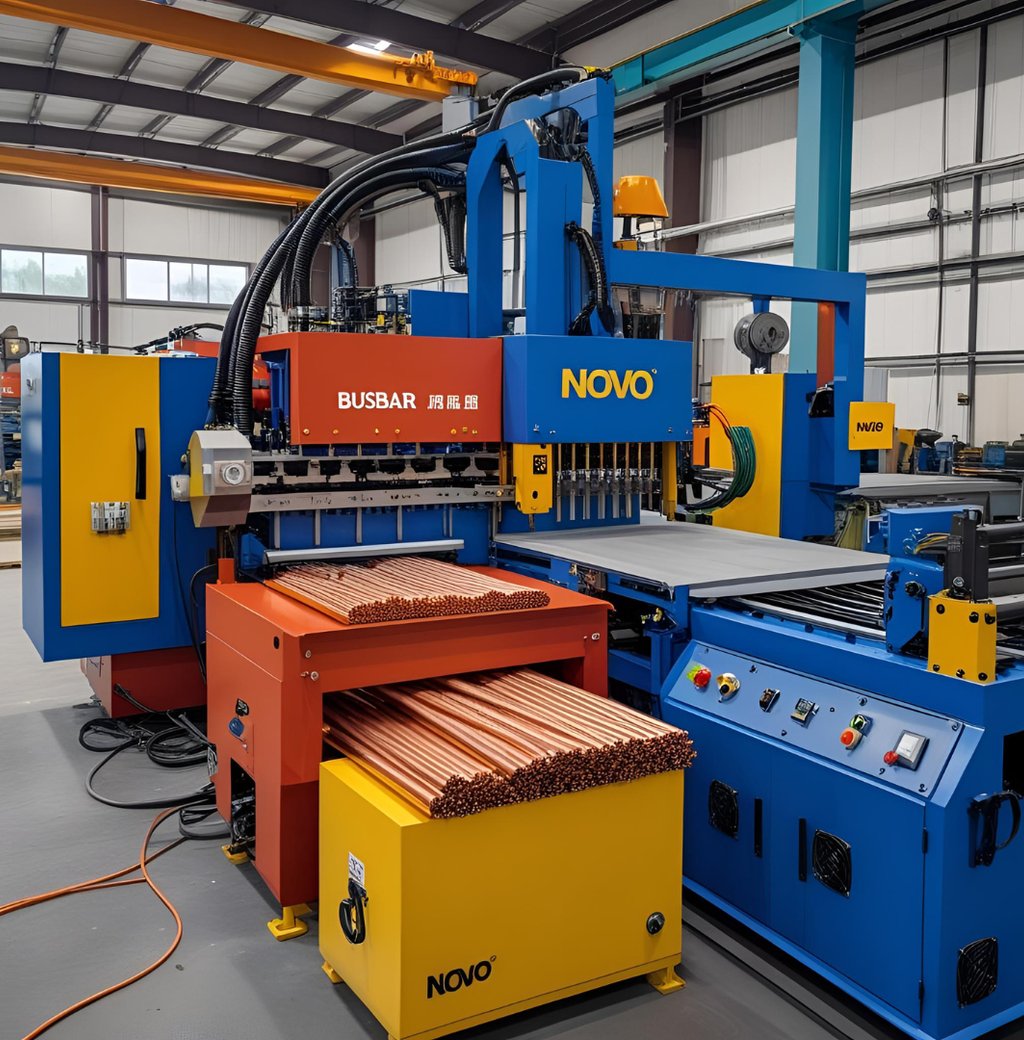Reliable Power Systems for data center power systems
Discover how busbar processing machines enhance power distribution systems in data center power systems, ensuring reliable current distribution compared to traditional CNC mills.
8/3/20254 min read


Understanding Data Center Power Systems
Data centers are critical infrastructure that require effective power systems to ensure continuous operation and operational efficiency. The stability and reliability of electricity supply are paramount in minimizing downtime and maximizing uptime for data processing and storage. One of the fundamental aspects of data center power systems is power distribution, which involves the delivery of electrical energy from the utility feed through various components before it reaches the servers and network equipment.
Central to this power distribution are several key components, including transformers, switchgear, and busbars. Transformers play a crucial role in stepping down high-voltage electricity to a level that is safe and usable for facility operation. Switchgear facilitates safe switching, protecting electrical circuits from overloads and faults. While each component is essential, busbars serve as a vital conduit for conducting electricity. These robust metal bars distribute electrical power throughout the data center, ensuring that reliable current distribution is maintained.
The significance of robust and reliable current distribution systems cannot be overstated. Data centers often operate continuously, hosting critical applications that require uninterrupted power supply. Any disruptions in the electrical infrastructure can lead to catastrophic equipment failures, loss of data, or significant financial losses. Thus, maintaining efficient power management systems is essential for the operational integrity of data centers.
However, managing power in data centers comes with its challenges. Increased demand for reliable current distribution can lead to congestion, heat generation, and possible power overloads. Moreover, rapid advancements in technology frequently necessitate upgrades to existing systems, demanding power systems to be adaptable and scalable. Addressing these challenges calls for comprehensive planning and the implementation of advanced technologies that can ensure resilience and reliability in the power infrastructure.
Introduction to Busbar Processing Machines
Busbar processing machines represent a crucial advancement in the field of electrical engineering, particularly in the area of power distribution within data centers. These specialized machines are designed to fabricate busbars—conductive bars that facilitate the distribution of electrical power efficiently and safely. By automating the processes involved in busbar production, these machines contribute significantly to enhancing the reliability and precision of current distribution systems.
The functionality of busbar processing machines encompasses several critical operations, including cutting, bending, and drilling. Each of these processes plays an essential role in ensuring that the busbars are tailored to meet specific operational requirements. For instance, the cutting process allows for the production of busbars in various lengths that accommodate different setups within a data center. Bending facilitates the creation of custom shapes that optimize space and reduce the possibility of electrical losses, while drilling allows for the integration of mounting holes and connections with other equipment.
In contrast to traditional manufacturing methods such as CNC mills, busbar processing machines are engineered to handle the specific demands of busbar fabrication more efficiently. CNC mills offer versatility for a range of manufacturing tasks but do not provide the same level of specialization required for high-volume busbar production. Furthermore, the precision achieved through busbar processing machines minimizes human error and accelerates the overall production timeline. This efficiency is paramount in data centers where downtime can result in significant losses.
As the demand for reliable current distribution systems continues to grow, the role of busbar processing machines becomes increasingly prominent. These machines assure that power distribution networks within data centers can meet the rigorous standards required in today's digital landscape, emphasizing their importance in modern electrical infrastructure.
CNC Mills vs. Busbar Processing Machines
In the realm of manufacturing, particularly for data center power systems, choosing the right machine for specific tasks is critical. CNC mills and busbar processing machines serve different roles and exhibit distinct advantages depending on the application. CNC mills are renowned for their versatility and precision, commonly used in the production of intricate and detailed components. Their capacity to handle complex designs makes them suitable for crafting various electronic enclosures, mounts, and racks. Moreover, CNC technology allows for a high degree of customization, providing manufacturers with the flexibility to produce unique components tailored to specific requirements.
However, when it comes to current distribution systems within data centers, busbar processing machines emerge as a more efficient alternative. These machines are specifically designed to fabricate busbars, which are essential for the distribution of electrical power. The manufacturing process of busbars demands a level of speed and precision that busbar processing machines are uniquely equipped to deliver. Unlike CNC mills, which are slower and may require multiple operations to produce similar products, busbar processing machines streamline the production process, significantly reducing lead times for large-scale electrical installations.
Another advantage of busbar processing machines is their ability to handle high volumes of standardized components while maintaining the necessary quality and precision. This makes them particularly suitable for data centers, where reliability and consistency in current distribution are of utmost importance. Furthermore, busbar processing machines can efficiently create various shapes and sizes of busbars, adhering to the strict regulations and specifications vital for electrical infrastructure.
While CNC mills remain advantageous in certain applications requiring high customization, busbar processing machines are specialized tools that cater predominantly to the needs of current distribution in data centers, ensuring reliable power delivery and operational efficiency.
Future Trends in Data Center Power Distribution
The landscape of data center power distribution is continually evolving, propelled by technological advancements and the pressing need for efficiency and sustainability. One of the prominent trends shaping this evolution is the growth of automation in busbar processing machinery. Automation enables the production of power distribution systems to become more consistent, streamlined, and efficient. By minimizing human errors and optimizing workflows, these automated systems enhance the reliability of current distribution, which is critical for maintaining uptime in data centers.
Another significant trend is the increasing emphasis on sustainability within the energy domain. Data centers are major consumers of electricity, prompting industry leaders to seek eco-friendly solutions. Busbar processing machines are adapting to this demand by employing greener technologies and materials, which not only reduce energy consumption but also minimize waste. The integration of sustainable practices in power distribution ensures that data centers can meet regulatory requirements while also appealing to environmentally-conscious stakeholders.
Moreover, the incorporation of smart technology into power management systems marks a transformative shift in how data centers function. Innovative technologies such as the Internet of Things (IoT) enable real-time monitoring and smart analytics, providing operators with valuable insights into power consumption patterns. This level of intelligence allows for proactive management of current loads, optimizing performance and enabling dynamic responses to fluctuations in energy demand.
As these trends continue to gather momentum, the future of data center power distribution appears promising. The synergy between automation, sustainability, and smart technology is set to redefine how power systems are designed and managed, underscoring the importance of reliability in current distribution. Industry stakeholders must stay abreast of these developments to ensure that their infrastructures are not only equipped for today’s challenges but are also prepared for future demands.
Innovate
Leading manufacturer of busbar processing equipment solutions.
Contact
Support
+131 2713 4627
© 2025. All rights reserved.
